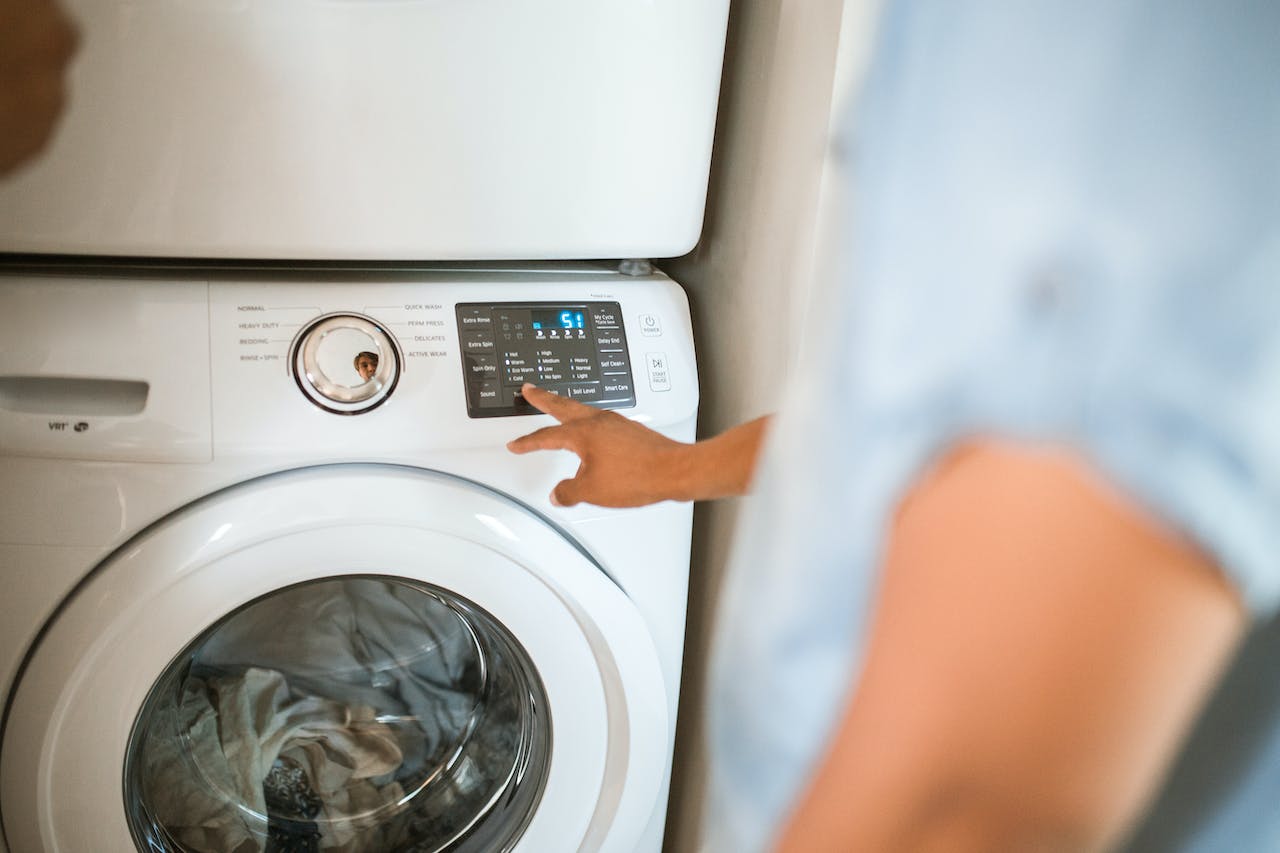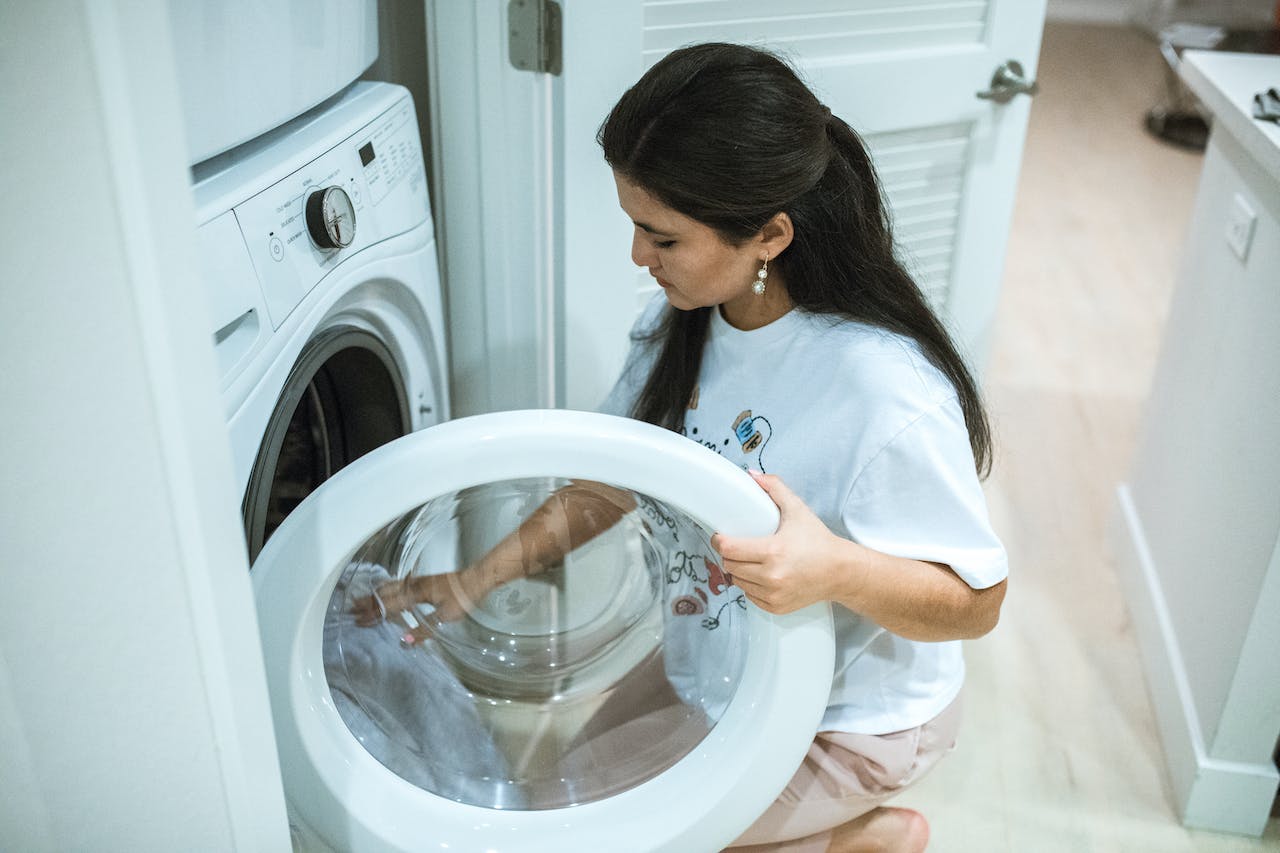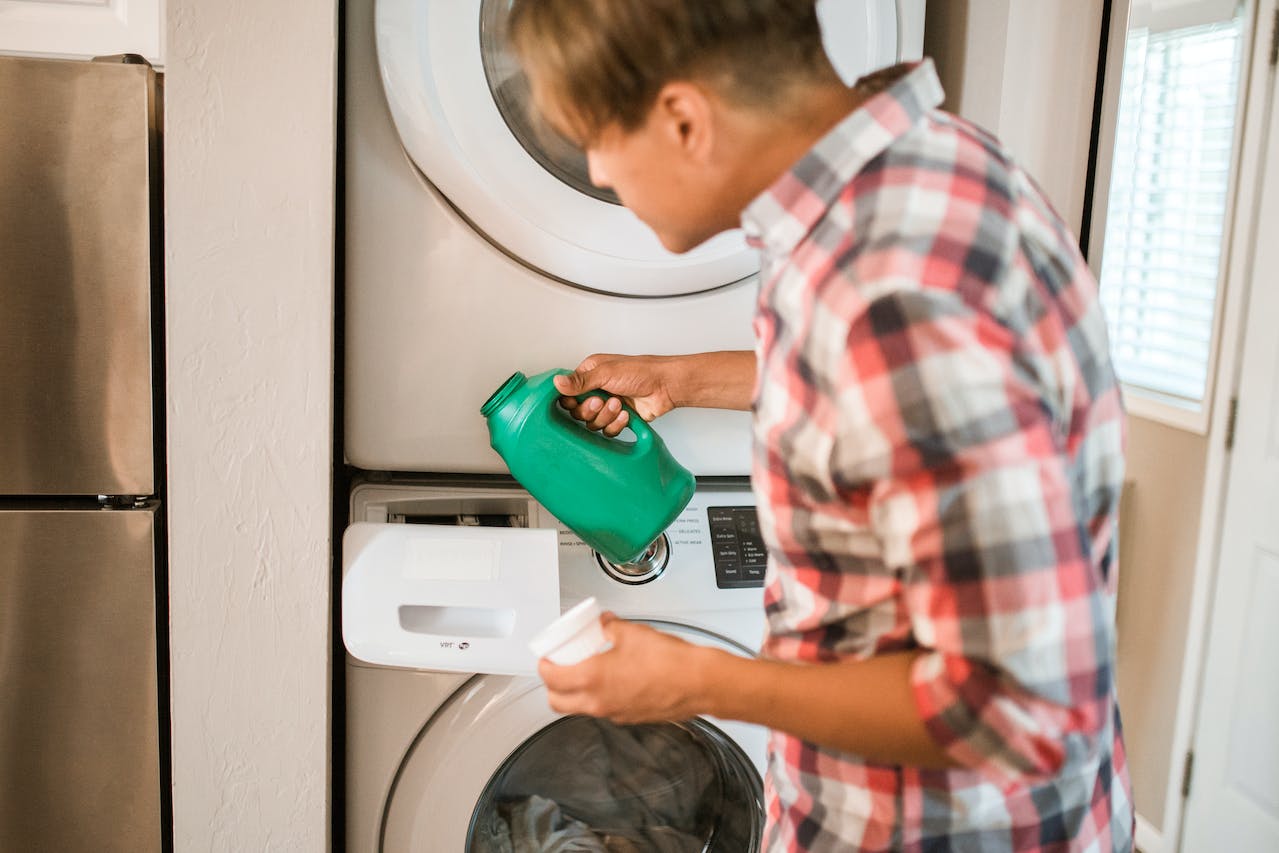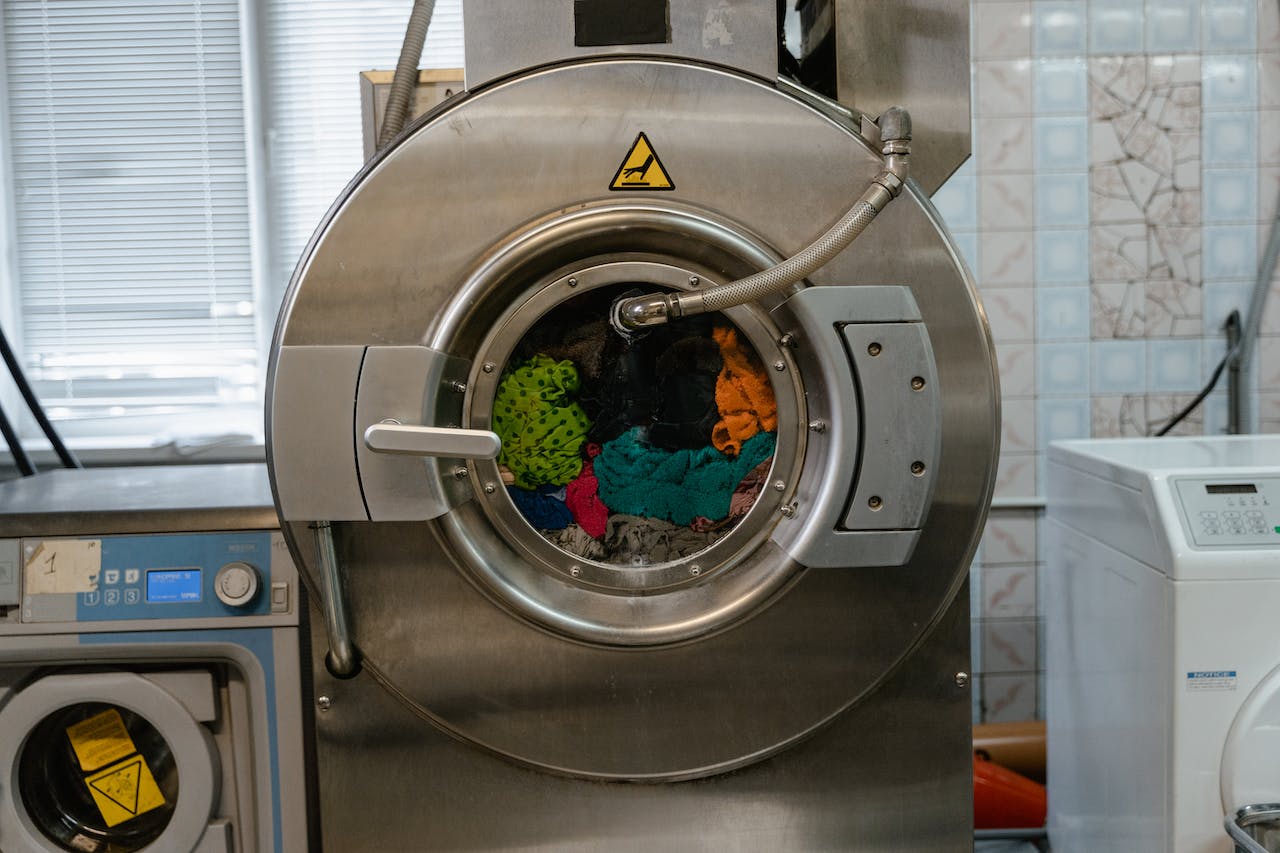
Why your washer is making banging sounds on the spin cycle? This seemingly simple question often leads to a complex web of potential issues that homeowners may face with their washing machines. The rhythmic thuds and clatters can be concerning, and understanding the root causes is crucial for effective troubleshooting.
This comprehensive guide will delve into the reasons behind the alarming noises emanating from your washer during the spin cycle and explore practical solutions to restore peace and efficiency to your laundry routine.
5 Most Common Causes For Loud Banging Noise On The Spin Cycle
It might be an issue you've mistakenly created, or it could be a more severe problem with the washing machine itself. Although newer kinds of washing machines are less prone to have surprising sounds, it may still happen.
Therefore, do not assume that since you have a brand new, state-of-the-art washing machine, you will never have this problem. Since this is such a prevalent issue, you can expect to deal with it at least twice over the lifetime of your washing machine.
Don't worry, however; we've got the answers you need to make your washer function like new again. Without further ado, let's investigate the potential causes of the noise coming from your washing machine's spin cycle and figure out a solution.
A Problem With The Washing Load
One of the most prevalent reasons for a pounding noise during a wash cycle is also one of the simplest to solve. Washing machines of various sizes have various weight limits, so be careful.
It's simpler than you would think to fill up a washing machine, but there are other potential dangers to keep an eye out for as well. You also need to make sure your laundry is divided equally; huge goods like beds, thick towels, and other more extensive apparel should be put in a washing machine carefully.
The pounding noise is caused by the inside tub of the washing machine not spinning correctly due to an uneven distribution of clothing. Although top-loading washers are more likely to have this issue, any washing machine might be affected.
Washer Feet Are Not Level
When a washing machine bangs, it's usually because the drum is out of alignment, but it might also be the whole machine. During the spin cycle, your washer may wobble if one of its feet is too short or if it is placed on uneven ground. This wobbling may create two distinct forms of pounding.
To begin with, it may dislodge the drum, sending it crashing into the interior of the cabinet. The washer may also become unstable and crash against walls, countertops, or even the dryer on the next shelf over. Even if it isn't the drum itself, this may result in a recurrent clanging noise.
Get a bubble level and check the center of gravity of your washing machine. To adjust the length of your washer, twist the feet in or out. Make sure your washer is perfectly level by adjusting the feet individually.
A Faulty Or Worn-Out Tub Bearing
The tub bearing is a component of your washing machine that you may not be familiar with, yet it is one of the most prevalent reasons for loud banging sounds. To clarify, what effect does it have?
The tub bearing, located below the tub, is what permits the tub to move and spin without any resistance when the washing machine is in use. The volume of the pounding sounds will increase as this bearing wears out.
Even while it's not often, they may also sustain injury. In any case, if you think your tub bearing is broken or is just worn out from age, you should have a professional washing machine repairman swap it out. Consult your instruction manual for further information since you may be able to examine the bearing yourself. However, this will depend on your type of washing machine.
A Problem With The Drive Pulley
The drive pulley is a wheel-like device that turns the washing machine's inner tub, making it an essential but also potentially problematic component. Belts that transmit motion from the motor to the driving pulley are prone to wear and eventual failure.
Both of these issues may lead to a clanging and clattering spin cycle, but a service expert should be able to solve it for you in most circumstances. Some washing machine models allow you to get to the drive pulley, but that doesn't mean you should.
Problems With The Shock Absorber
The tub in a washing machine is hung in a metal chamber, which may not sound pleasant, but it enables the tub to move throughout a wash cycle. However, tub shock absorbers might separate and create washing machine issues.
Since the tub is now in a different location, it bangs when spinning, which may become a significant issue if left unrepaired. Depending on your washing machine type, you may be able to inspect and replace the shock absorbers yourself, but it's best to consult a professional.
That concludes the four most typical reasons for washing machine pounding during a wash cycle. The issues vary from tiny to major, but if you want your washing machine serviced and examined swiftly, contact Repair Aid.
How Do You Resolve Loud Banging Noises Coming From The Washer?
Don't Overload Your Washer
You may be putting too much laundry in your washing machine, which is why sometimes the cycle is so noisy. In order to give your garments more space to move around while the washer agitates, try lowering the load size.
The recommended laundry load sizes are shown below.
- Max. 80% for top-loading washers
- Maximum 60% of front-loading washers
Load Your Washer Evenly
The most frequent cause of your washer making loud noises during the spin cycle is an uneven load that has knocked it off of balance. Make sure to properly spread your filthy clothing across the drum of your machine when you put them in. It may spin unevenly if there are heavier objects mixed with lighter ones. Consider washing linen, towels, and large pants in separate loads.
Check Your Washer Feet
If your washer is unbalanced, it will agitate and produce noise. A simple remedy: Verify that your device is on level ground. If so, check that the machine's feet, the rounded, movable pads at each of the four lower corners, are level. Twist the foot that is not securely placed and is higher than the others until it is level with the other feet, and the washer is stable.
Check For A Broken Basket Or Damaged Drum Spider Arms In Front-loading Machines
If your washer is producing loud sounds, you are loading your clothes correctly, and the machine is level, you may need to address a mechanical issue. Usually, this involves a component associated with the drum.
To keep the drum basket in position, front-loading machines use a multi-armed stabilizer called drum spider arms. To see whether the drum spider arms or the basket have any cracks in them.
- Carefully raise and lower the washer's drum after opening the door.
- A fractured drum spider arm or spiders are probably the cause of the excessive movement of the drum.
Inspect The Drum Screws
Loose screws in the drum of your washer might be another cause of the noise.
Put on work gloves to shield your hands from sharp objects before checking. Next, check to see whether the screws holding the drum of your machine in place are loose by opening the washer cabinet.
- The top and rear panels of the top-loading washers should be removed.
- Remove the front panel and the top of the front-loading washers.
Look At The Drive Pulley Or Belt
Is your washing machine still making grinding or pounding noises? Examine the belt system, which often consists of pulleys to power the motor, maintain the drum's rotation, and stir the clothes.
To check these parts, remove the washer cabinet. To maintain your washer spinning correctly, you will need to have any cracks or breaks in them fixed or replaced by a specialist.
Check For A Worn-out Tub-bearing
Because ball bearings keep your washer on course with each round, the tub or drum bearing is what makes it possible for it to spin. To replace the worn-out drum bearing, a repair professional will need to remove the drum and have access to it.
Look For An Issue With The Shock Absorbers On Front-loading Washers
These components support the balanced and uniform spinning of the washing drum. Check to see whether the shocks on your machine are worn out or detached by opening the rear panel. If so, you will need to replace them in order to maintain a quiet and even operation of your system.
Frequently Asked Questions
Why Is My Washing Machine Loud Banging When Spinning?
Banging. Items rotating within the drum cause banging or clanking. Detachable buttons or zippers can cause problems. These things may also become lodged in the lint trap or door seal, making scraping or rattling sounds.
Why Does My LG Washer Make A Banging Sound When Spinning?
If the weight is imbalanced, the tub will not revolve evenly, generating a thumping or pounding sound. Stop the washing machine and rebalance the load if necessary.
Why Does My Washing Machine Shake Violently During The Spin Cycle?
Older washing machines' shock absorbers or drum bearings might wear out, causing internal imbalance and shaking. Check the basket or drum of your top or front-loading washer for centering within the opening.
How Do I Stop My Washing Machine Pipes From Bursting?
Quickly inspecting your plumbing, clamping loose pipes, and installing a hammer arrestor may repair or prevent most pounding pipes. Protect plumbing fixtures from water pounding and improve valve life.
How Do I Know If My Washing Machine Drum Is Loose?
Unscrew and set aside your washing machine's top panel to access the weights. Feel the washers holding the counterweight on top of the tub inside the machine to determine whether it's loose. If washers are loose, counterweight will be too.
In The End
The disruptive banging sounds during your washing machine's spin cycle can stem from various issues such as imbalance, overloading, worn-out components, and misalignments. To restore tranquility to your laundry routine, regular maintenance, adherence to load guidelines, and prompt addressing of wear and tear are crucial.
By understanding and tackling these factors, you can bid farewell to the mystery of Why Your Washer is Making Banging Sounds on the Spin Cycle, ensuring a quieter and more efficient laundry experience.


